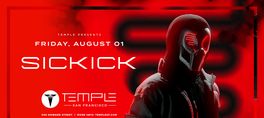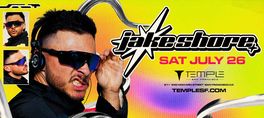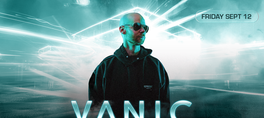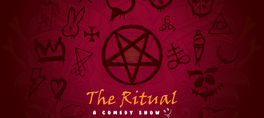Everest
The concept of ownership has such a weird place in our culture. Too much of the time, ownership is talked about in relation to “owning up” to something—which is usually admitting a mistake or stepping up to a lie. Meanwhile, getting “owned” is generally tantamount to having your ass handed to you, which is almost never a good thing. In bygone eras, ownership was often a term used only in relation to the buying of land (which almost no one can afford to do these days) or, in some cases, the “taking” of a wife (yikes). These days, a generation raised on after-school specials and healthy doses of therapy-speak recognize that ownership is often about control—as in, taking control of one’s own messy, crazy life, or assuming ownership over one’s problems (because they are usually your own damned fault). So what does it mean to be ownerless? If you are a band from Los Angeles called Everest, being ownerless represents a kind of creative freedom the likes of which you have never known before, a feeling that propels you to create some of the finest rock music of your career. You feel this sublime sense of liberation so strongly that you decide to call your excellent new album Ownerless.
Formed by Russell Pollard (who formerly played with Sebadoh, The Folk Implosion, and Earlimart) in 2007, Everest caught national attention with the release of 2010 sophomore album, On Approach. While the record helped propel them onto bigger stages and put them in front of bigger audiences, most of the band felt the record only scratched the surface of what they could do. Thus the story of Ownerless begins in early 2011 when the four members of Everest found themselves at creative loose ends. Having been recently freed from a deal with Warner Bros and still slightly road-weary from touring relentlessly behind On Approach, the band set up shop with longtime friend and musical compatriot Richard Swift at his National Freedom studios in Cottage Grove, Oregon. After several weeks of recording, the band eventually returned to LA and enlisted another old friend, Rob Schnapf (known for working on Beck’s Mellow Gold & Odelay, Elliott Smith’s XO & Figure 8, as well as Foo Fighters’ eponymous debut) to produce additional recording sessions for the record. It was the kind of creative kick in the pants that the band needed. “He’s a no-bullshit kind of guy,” says front man Russell Pollard, “If something isn’t working or something isn’t right, he’ll totally bench you. No bullshit, no drama. We didn’t have to rush this time either. Doing things at our own pace, we were able to put our egos aside and just concentrate on making the best record possible.”
Building on the strengths of the band’s previous two records, Ownerless finds them stretching out in new and previously unexplored directions. Whether it be the slack-jaw stoner riffing of opening track “Rapture”, the ghostly, late-night harmonics of “Letter,” or the krautrock shuffle of “Hungry Ghost,” Ownerless sounds like a band functioning like an eight-armed groove machine—a vibe cultivated by the bands newfound sense of not giving a fuck (in the best way possible). “I think we were all very selfless this time around,” says guitarist Joel Graves. “We’ve learned how to support each other’s ideas. We all took turns playing different instruments, singing, playing percussion. It’s the most collaborative thing we’ve ever done together.”
Like the best art, the songs on Ownerless come from a place of un-self-consciousness. It’s the sound of rock music made by musicians working on their own time (and, mostly, their own dime) without the pressures of industry A&R dudes or marketing folks muddying up the creative waters. “People would say that they didn’t really know how to describe us,” says guitarist Jason Soda, “They couldn’t figure out exactly how to categorize our music or figure out what Pandora station we should belong to—as if that was a somehow a bad thing. I think we finally embraced the fact that we shouldn’t sound like anybody. We should sound like us. Not worrying about stuff like that is actually incredibly liberating.“
As the so-called collapse of the music industry (whether it be real or imagined) continues to baffle and confound record label execs, bands like Everest—groups that have opted to take the reigns over their own destinies, both creative and commercial—often have the most to gain. With no owner, you are truly free. And any working musician will tell you, enduring the slings and arrows of the music biz often makes you reconsider why you make music and who, exactly, you are making it for. According to bassist Elijah Thomson, it was this kind of creative/commercial soul searching that ultimately lead to a watershed moment for the band. “We’ve been through the ringer a little bit,” he says, “but it’s really part of the story of this record. All of that was really metamorphic for us. That’s the story of so many great bands and so many great records—when it feels right ultimately it will be right, and we really feel right about this record in ways that we never did in the past. Making a good record is relatively easy, but making a great record is much harder…and all we can do is try and do that.”
It’s hard to not to listen to Ownerless and feel that the band has done just that. Three records deep into their career they haven’t just made a good record, they’ve made a great, effortless-sounding rock record. Only a band that has come to terms with their own bullshit—and, for lack of a better term, taken total ownership over their own creative process—would come up with a track as classically rocking as “Games” or as off-the-cuff heartbreaking as “Raking Me Over the Coals” or “Far Off, Away.” Such honest musical sentiments are not so easy to come by.
“This feels like the first real Everest record,” says Pollard, “It’s the natural result of years of touring and spending time together. It’s the result of years of late night conversations about what kind of band we want to be and what kind of music we want to step onstage and play every night. It’s the sound of us finally hitting our stride.”
Everest’s Ownerless is out June 26th on ATO/Vapor Records
------
White Dove
On their forthcoming album, “The Hoss, The Candle,” White Dove have crafted a lush collection of songs that are both enigmatic and powerful. With touches of soft-rock, psychedelia, and classic California rock, White Dove confidently layer ethereal background harmonies with cosmic slide guitar. However, the band never stay in the sun for long. Night has fallen on the streets of LA, with White Dove creating their own dark-pop sound.
As songwriter Alex Johnstone’s abstract lyricism and otherworldly vocals anchor the album, the songs twist and turn, from a laid back shuffle one minute, to ominously expansive the next. The band reveal themselves to be capable of both the celestial as well as the immediate, with instantly memorable songs that could leave the ground at any moment.
Shedding their former name Monster, a moniker Alex Johnstone has carried since forming the band in Sierra Madre, CA in 2002, this year finds White Dove completing their new album at Kingsize Sound Labs in Los Angeles with producer Dave Trumfio. “The Hoss, The Candle” again puts Johnstone’s voice and songwriting front and center, this time supported by the melodically spry guitar lines of Jack Long and the cool bass lines of Carl Harders. Keyboards and pedal steel round out a record that is steeped in transcendent melodies and silvery songcraft. With touchstones such as Fleetwood Mac, Emitt Rhodes, and The Byrds, the band display their love of sophisticated rock classicism on songs such as “I’m The Air”, “Cold Mountain” and “I Saw You.”
While the band wears their hometown pride on their sleeves, the songwriting is full of surprises. Invoking Julee Cruise via Twin Peaks, the song “No One Home” is a yearning waltz down the dark end of the street. Other songs such as “Sister” and “The Famous Horseman” call to mind the spectral qualities of Kate Bush. Still, the aura that the band creates is undeniably their own throughout the album, a record that is meant to be played under a starry sky. On “The Hoss, The Candle”, White Dove have created a sound that swells and glows in the night.
show less
The concept of ownership has such a weird place in our culture. Too much of the time, ownership is talked about in relation to “owning up” to something—which is usually admitting a mistake or stepping up to a lie. Meanwhile, getting “owned” is generally tantamount to having your ass handed to you, which is almost never a good thing. In bygone eras, ownership was often a term used only in relation to the buying of land (which almost no one can afford to do these days) or, in some cases, the “taking” of a wife (yikes). These days, a generation raised on after-school specials and healthy doses of therapy-speak recognize that ownership is often about control—as in, taking control of one’s own messy, crazy life, or assuming ownership over one’s problems (because they are usually your own damned fault). So what does it mean to be ownerless? If you are a band from Los Angeles called Everest, being ownerless represents a kind of creative freedom the likes of which you have never known before, a feeling that propels you to create some of the finest rock music of your career. You feel this sublime sense of liberation so strongly that you decide to call your excellent new album Ownerless.
Formed by Russell Pollard (who formerly played with Sebadoh, The Folk Implosion, and Earlimart) in 2007, Everest caught national attention with the release of 2010 sophomore album, On Approach. While the record helped propel them onto bigger stages and put them in front of bigger audiences, most of the band felt the record only scratched the surface of what they could do. Thus the story of Ownerless begins in early 2011 when the four members of Everest found themselves at creative loose ends. Having been recently freed from a deal with Warner Bros and still slightly road-weary from touring relentlessly behind On Approach, the band set up shop with longtime friend and musical compatriot Richard Swift at his National Freedom studios in Cottage Grove, Oregon. After several weeks of recording, the band eventually returned to LA and enlisted another old friend, Rob Schnapf (known for working on Beck’s Mellow Gold & Odelay, Elliott Smith’s XO & Figure 8, as well as Foo Fighters’ eponymous debut) to produce additional recording sessions for the record. It was the kind of creative kick in the pants that the band needed. “He’s a no-bullshit kind of guy,” says front man Russell Pollard, “If something isn’t working or something isn’t right, he’ll totally bench you. No bullshit, no drama. We didn’t have to rush this time either. Doing things at our own pace, we were able to put our egos aside and just concentrate on making the best record possible.”
Building on the strengths of the band’s previous two records, Ownerless finds them stretching out in new and previously unexplored directions. Whether it be the slack-jaw stoner riffing of opening track “Rapture”, the ghostly, late-night harmonics of “Letter,” or the krautrock shuffle of “Hungry Ghost,” Ownerless sounds like a band functioning like an eight-armed groove machine—a vibe cultivated by the bands newfound sense of not giving a fuck (in the best way possible). “I think we were all very selfless this time around,” says guitarist Joel Graves. “We’ve learned how to support each other’s ideas. We all took turns playing different instruments, singing, playing percussion. It’s the most collaborative thing we’ve ever done together.”
Like the best art, the songs on Ownerless come from a place of un-self-consciousness. It’s the sound of rock music made by musicians working on their own time (and, mostly, their own dime) without the pressures of industry A&R dudes or marketing folks muddying up the creative waters. “People would say that they didn’t really know how to describe us,” says guitarist Jason Soda, “They couldn’t figure out exactly how to categorize our music or figure out what Pandora station we should belong to—as if that was a somehow a bad thing. I think we finally embraced the fact that we shouldn’t sound like anybody. We should sound like us. Not worrying about stuff like that is actually incredibly liberating.“
As the so-called collapse of the music industry (whether it be real or imagined) continues to baffle and confound record label execs, bands like Everest—groups that have opted to take the reigns over their own destinies, both creative and commercial—often have the most to gain. With no owner, you are truly free. And any working musician will tell you, enduring the slings and arrows of the music biz often makes you reconsider why you make music and who, exactly, you are making it for. According to bassist Elijah Thomson, it was this kind of creative/commercial soul searching that ultimately lead to a watershed moment for the band. “We’ve been through the ringer a little bit,” he says, “but it’s really part of the story of this record. All of that was really metamorphic for us. That’s the story of so many great bands and so many great records—when it feels right ultimately it will be right, and we really feel right about this record in ways that we never did in the past. Making a good record is relatively easy, but making a great record is much harder…and all we can do is try and do that.”
It’s hard to not to listen to Ownerless and feel that the band has done just that. Three records deep into their career they haven’t just made a good record, they’ve made a great, effortless-sounding rock record. Only a band that has come to terms with their own bullshit—and, for lack of a better term, taken total ownership over their own creative process—would come up with a track as classically rocking as “Games” or as off-the-cuff heartbreaking as “Raking Me Over the Coals” or “Far Off, Away.” Such honest musical sentiments are not so easy to come by.
“This feels like the first real Everest record,” says Pollard, “It’s the natural result of years of touring and spending time together. It’s the result of years of late night conversations about what kind of band we want to be and what kind of music we want to step onstage and play every night. It’s the sound of us finally hitting our stride.”
Everest’s Ownerless is out June 26th on ATO/Vapor Records
------
White Dove
On their forthcoming album, “The Hoss, The Candle,” White Dove have crafted a lush collection of songs that are both enigmatic and powerful. With touches of soft-rock, psychedelia, and classic California rock, White Dove confidently layer ethereal background harmonies with cosmic slide guitar. However, the band never stay in the sun for long. Night has fallen on the streets of LA, with White Dove creating their own dark-pop sound.
As songwriter Alex Johnstone’s abstract lyricism and otherworldly vocals anchor the album, the songs twist and turn, from a laid back shuffle one minute, to ominously expansive the next. The band reveal themselves to be capable of both the celestial as well as the immediate, with instantly memorable songs that could leave the ground at any moment.
Shedding their former name Monster, a moniker Alex Johnstone has carried since forming the band in Sierra Madre, CA in 2002, this year finds White Dove completing their new album at Kingsize Sound Labs in Los Angeles with producer Dave Trumfio. “The Hoss, The Candle” again puts Johnstone’s voice and songwriting front and center, this time supported by the melodically spry guitar lines of Jack Long and the cool bass lines of Carl Harders. Keyboards and pedal steel round out a record that is steeped in transcendent melodies and silvery songcraft. With touchstones such as Fleetwood Mac, Emitt Rhodes, and The Byrds, the band display their love of sophisticated rock classicism on songs such as “I’m The Air”, “Cold Mountain” and “I Saw You.”
While the band wears their hometown pride on their sleeves, the songwriting is full of surprises. Invoking Julee Cruise via Twin Peaks, the song “No One Home” is a yearning waltz down the dark end of the street. Other songs such as “Sister” and “The Famous Horseman” call to mind the spectral qualities of Kate Bush. Still, the aura that the band creates is undeniably their own throughout the album, a record that is meant to be played under a starry sky. On “The Hoss, The Candle”, White Dove have created a sound that swells and glows in the night.
Everest
The concept of ownership has such a weird place in our culture. Too much of the time, ownership is talked about in relation to “owning up” to something—which is usually admitting a mistake or stepping up to a lie. Meanwhile, getting “owned” is generally tantamount to having your ass handed to you, which is almost never a good thing. In bygone eras, ownership was often a term used only in relation to the buying of land (which almost no one can afford to do these days) or, in some cases, the “taking” of a wife (yikes). These days, a generation raised on after-school specials and healthy doses of therapy-speak recognize that ownership is often about control—as in, taking control of one’s own messy, crazy life, or assuming ownership over one’s problems (because they are usually your own damned fault). So what does it mean to be ownerless? If you are a band from Los Angeles called Everest, being ownerless represents a kind of creative freedom the likes of which you have never known before, a feeling that propels you to create some of the finest rock music of your career. You feel this sublime sense of liberation so strongly that you decide to call your excellent new album Ownerless.
Formed by Russell Pollard (who formerly played with Sebadoh, The Folk Implosion, and Earlimart) in 2007, Everest caught national attention with the release of 2010 sophomore album, On Approach. While the record helped propel them onto bigger stages and put them in front of bigger audiences, most of the band felt the record only scratched the surface of what they could do. Thus the story of Ownerless begins in early 2011 when the four members of Everest found themselves at creative loose ends. Having been recently freed from a deal with Warner Bros and still slightly road-weary from touring relentlessly behind On Approach, the band set up shop with longtime friend and musical compatriot Richard Swift at his National Freedom studios in Cottage Grove, Oregon. After several weeks of recording, the band eventually returned to LA and enlisted another old friend, Rob Schnapf (known for working on Beck’s Mellow Gold & Odelay, Elliott Smith’s XO & Figure 8, as well as Foo Fighters’ eponymous debut) to produce additional recording sessions for the record. It was the kind of creative kick in the pants that the band needed. “He’s a no-bullshit kind of guy,” says front man Russell Pollard, “If something isn’t working or something isn’t right, he’ll totally bench you. No bullshit, no drama. We didn’t have to rush this time either. Doing things at our own pace, we were able to put our egos aside and just concentrate on making the best record possible.”
Building on the strengths of the band’s previous two records, Ownerless finds them stretching out in new and previously unexplored directions. Whether it be the slack-jaw stoner riffing of opening track “Rapture”, the ghostly, late-night harmonics of “Letter,” or the krautrock shuffle of “Hungry Ghost,” Ownerless sounds like a band functioning like an eight-armed groove machine—a vibe cultivated by the bands newfound sense of not giving a fuck (in the best way possible). “I think we were all very selfless this time around,” says guitarist Joel Graves. “We’ve learned how to support each other’s ideas. We all took turns playing different instruments, singing, playing percussion. It’s the most collaborative thing we’ve ever done together.”
Like the best art, the songs on Ownerless come from a place of un-self-consciousness. It’s the sound of rock music made by musicians working on their own time (and, mostly, their own dime) without the pressures of industry A&R dudes or marketing folks muddying up the creative waters. “People would say that they didn’t really know how to describe us,” says guitarist Jason Soda, “They couldn’t figure out exactly how to categorize our music or figure out what Pandora station we should belong to—as if that was a somehow a bad thing. I think we finally embraced the fact that we shouldn’t sound like anybody. We should sound like us. Not worrying about stuff like that is actually incredibly liberating.“
As the so-called collapse of the music industry (whether it be real or imagined) continues to baffle and confound record label execs, bands like Everest—groups that have opted to take the reigns over their own destinies, both creative and commercial—often have the most to gain. With no owner, you are truly free. And any working musician will tell you, enduring the slings and arrows of the music biz often makes you reconsider why you make music and who, exactly, you are making it for. According to bassist Elijah Thomson, it was this kind of creative/commercial soul searching that ultimately lead to a watershed moment for the band. “We’ve been through the ringer a little bit,” he says, “but it’s really part of the story of this record. All of that was really metamorphic for us. That’s the story of so many great bands and so many great records—when it feels right ultimately it will be right, and we really feel right about this record in ways that we never did in the past. Making a good record is relatively easy, but making a great record is much harder…and all we can do is try and do that.”
It’s hard to not to listen to Ownerless and feel that the band has done just that. Three records deep into their career they haven’t just made a good record, they’ve made a great, effortless-sounding rock record. Only a band that has come to terms with their own bullshit—and, for lack of a better term, taken total ownership over their own creative process—would come up with a track as classically rocking as “Games” or as off-the-cuff heartbreaking as “Raking Me Over the Coals” or “Far Off, Away.” Such honest musical sentiments are not so easy to come by.
“This feels like the first real Everest record,” says Pollard, “It’s the natural result of years of touring and spending time together. It’s the result of years of late night conversations about what kind of band we want to be and what kind of music we want to step onstage and play every night. It’s the sound of us finally hitting our stride.”
Everest’s Ownerless is out June 26th on ATO/Vapor Records
------
White Dove
On their forthcoming album, “The Hoss, The Candle,” White Dove have crafted a lush collection of songs that are both enigmatic and powerful. With touches of soft-rock, psychedelia, and classic California rock, White Dove confidently layer ethereal background harmonies with cosmic slide guitar. However, the band never stay in the sun for long. Night has fallen on the streets of LA, with White Dove creating their own dark-pop sound.
As songwriter Alex Johnstone’s abstract lyricism and otherworldly vocals anchor the album, the songs twist and turn, from a laid back shuffle one minute, to ominously expansive the next. The band reveal themselves to be capable of both the celestial as well as the immediate, with instantly memorable songs that could leave the ground at any moment.
Shedding their former name Monster, a moniker Alex Johnstone has carried since forming the band in Sierra Madre, CA in 2002, this year finds White Dove completing their new album at Kingsize Sound Labs in Los Angeles with producer Dave Trumfio. “The Hoss, The Candle” again puts Johnstone’s voice and songwriting front and center, this time supported by the melodically spry guitar lines of Jack Long and the cool bass lines of Carl Harders. Keyboards and pedal steel round out a record that is steeped in transcendent melodies and silvery songcraft. With touchstones such as Fleetwood Mac, Emitt Rhodes, and The Byrds, the band display their love of sophisticated rock classicism on songs such as “I’m The Air”, “Cold Mountain” and “I Saw You.”
While the band wears their hometown pride on their sleeves, the songwriting is full of surprises. Invoking Julee Cruise via Twin Peaks, the song “No One Home” is a yearning waltz down the dark end of the street. Other songs such as “Sister” and “The Famous Horseman” call to mind the spectral qualities of Kate Bush. Still, the aura that the band creates is undeniably their own throughout the album, a record that is meant to be played under a starry sky. On “The Hoss, The Candle”, White Dove have created a sound that swells and glows in the night.
read more
The concept of ownership has such a weird place in our culture. Too much of the time, ownership is talked about in relation to “owning up” to something—which is usually admitting a mistake or stepping up to a lie. Meanwhile, getting “owned” is generally tantamount to having your ass handed to you, which is almost never a good thing. In bygone eras, ownership was often a term used only in relation to the buying of land (which almost no one can afford to do these days) or, in some cases, the “taking” of a wife (yikes). These days, a generation raised on after-school specials and healthy doses of therapy-speak recognize that ownership is often about control—as in, taking control of one’s own messy, crazy life, or assuming ownership over one’s problems (because they are usually your own damned fault). So what does it mean to be ownerless? If you are a band from Los Angeles called Everest, being ownerless represents a kind of creative freedom the likes of which you have never known before, a feeling that propels you to create some of the finest rock music of your career. You feel this sublime sense of liberation so strongly that you decide to call your excellent new album Ownerless.
Formed by Russell Pollard (who formerly played with Sebadoh, The Folk Implosion, and Earlimart) in 2007, Everest caught national attention with the release of 2010 sophomore album, On Approach. While the record helped propel them onto bigger stages and put them in front of bigger audiences, most of the band felt the record only scratched the surface of what they could do. Thus the story of Ownerless begins in early 2011 when the four members of Everest found themselves at creative loose ends. Having been recently freed from a deal with Warner Bros and still slightly road-weary from touring relentlessly behind On Approach, the band set up shop with longtime friend and musical compatriot Richard Swift at his National Freedom studios in Cottage Grove, Oregon. After several weeks of recording, the band eventually returned to LA and enlisted another old friend, Rob Schnapf (known for working on Beck’s Mellow Gold & Odelay, Elliott Smith’s XO & Figure 8, as well as Foo Fighters’ eponymous debut) to produce additional recording sessions for the record. It was the kind of creative kick in the pants that the band needed. “He’s a no-bullshit kind of guy,” says front man Russell Pollard, “If something isn’t working or something isn’t right, he’ll totally bench you. No bullshit, no drama. We didn’t have to rush this time either. Doing things at our own pace, we were able to put our egos aside and just concentrate on making the best record possible.”
Building on the strengths of the band’s previous two records, Ownerless finds them stretching out in new and previously unexplored directions. Whether it be the slack-jaw stoner riffing of opening track “Rapture”, the ghostly, late-night harmonics of “Letter,” or the krautrock shuffle of “Hungry Ghost,” Ownerless sounds like a band functioning like an eight-armed groove machine—a vibe cultivated by the bands newfound sense of not giving a fuck (in the best way possible). “I think we were all very selfless this time around,” says guitarist Joel Graves. “We’ve learned how to support each other’s ideas. We all took turns playing different instruments, singing, playing percussion. It’s the most collaborative thing we’ve ever done together.”
Like the best art, the songs on Ownerless come from a place of un-self-consciousness. It’s the sound of rock music made by musicians working on their own time (and, mostly, their own dime) without the pressures of industry A&R dudes or marketing folks muddying up the creative waters. “People would say that they didn’t really know how to describe us,” says guitarist Jason Soda, “They couldn’t figure out exactly how to categorize our music or figure out what Pandora station we should belong to—as if that was a somehow a bad thing. I think we finally embraced the fact that we shouldn’t sound like anybody. We should sound like us. Not worrying about stuff like that is actually incredibly liberating.“
As the so-called collapse of the music industry (whether it be real or imagined) continues to baffle and confound record label execs, bands like Everest—groups that have opted to take the reigns over their own destinies, both creative and commercial—often have the most to gain. With no owner, you are truly free. And any working musician will tell you, enduring the slings and arrows of the music biz often makes you reconsider why you make music and who, exactly, you are making it for. According to bassist Elijah Thomson, it was this kind of creative/commercial soul searching that ultimately lead to a watershed moment for the band. “We’ve been through the ringer a little bit,” he says, “but it’s really part of the story of this record. All of that was really metamorphic for us. That’s the story of so many great bands and so many great records—when it feels right ultimately it will be right, and we really feel right about this record in ways that we never did in the past. Making a good record is relatively easy, but making a great record is much harder…and all we can do is try and do that.”
It’s hard to not to listen to Ownerless and feel that the band has done just that. Three records deep into their career they haven’t just made a good record, they’ve made a great, effortless-sounding rock record. Only a band that has come to terms with their own bullshit—and, for lack of a better term, taken total ownership over their own creative process—would come up with a track as classically rocking as “Games” or as off-the-cuff heartbreaking as “Raking Me Over the Coals” or “Far Off, Away.” Such honest musical sentiments are not so easy to come by.
“This feels like the first real Everest record,” says Pollard, “It’s the natural result of years of touring and spending time together. It’s the result of years of late night conversations about what kind of band we want to be and what kind of music we want to step onstage and play every night. It’s the sound of us finally hitting our stride.”
Everest’s Ownerless is out June 26th on ATO/Vapor Records
------
White Dove
On their forthcoming album, “The Hoss, The Candle,” White Dove have crafted a lush collection of songs that are both enigmatic and powerful. With touches of soft-rock, psychedelia, and classic California rock, White Dove confidently layer ethereal background harmonies with cosmic slide guitar. However, the band never stay in the sun for long. Night has fallen on the streets of LA, with White Dove creating their own dark-pop sound.
As songwriter Alex Johnstone’s abstract lyricism and otherworldly vocals anchor the album, the songs twist and turn, from a laid back shuffle one minute, to ominously expansive the next. The band reveal themselves to be capable of both the celestial as well as the immediate, with instantly memorable songs that could leave the ground at any moment.
Shedding their former name Monster, a moniker Alex Johnstone has carried since forming the band in Sierra Madre, CA in 2002, this year finds White Dove completing their new album at Kingsize Sound Labs in Los Angeles with producer Dave Trumfio. “The Hoss, The Candle” again puts Johnstone’s voice and songwriting front and center, this time supported by the melodically spry guitar lines of Jack Long and the cool bass lines of Carl Harders. Keyboards and pedal steel round out a record that is steeped in transcendent melodies and silvery songcraft. With touchstones such as Fleetwood Mac, Emitt Rhodes, and The Byrds, the band display their love of sophisticated rock classicism on songs such as “I’m The Air”, “Cold Mountain” and “I Saw You.”
While the band wears their hometown pride on their sleeves, the songwriting is full of surprises. Invoking Julee Cruise via Twin Peaks, the song “No One Home” is a yearning waltz down the dark end of the street. Other songs such as “Sister” and “The Famous Horseman” call to mind the spectral qualities of Kate Bush. Still, the aura that the band creates is undeniably their own throughout the album, a record that is meant to be played under a starry sky. On “The Hoss, The Candle”, White Dove have created a sound that swells and glows in the night.
show less
Date/Times:
Cafe du Nord
1 Upcoming Events
2174 Market Street, San Francisco, CA 94114
The Best Events
Every Week in Your Inbox
From Our Sponsors
UPCOMING EVENTS
Great suggestion! We'll be in touch.
Event reviewed successfully.








